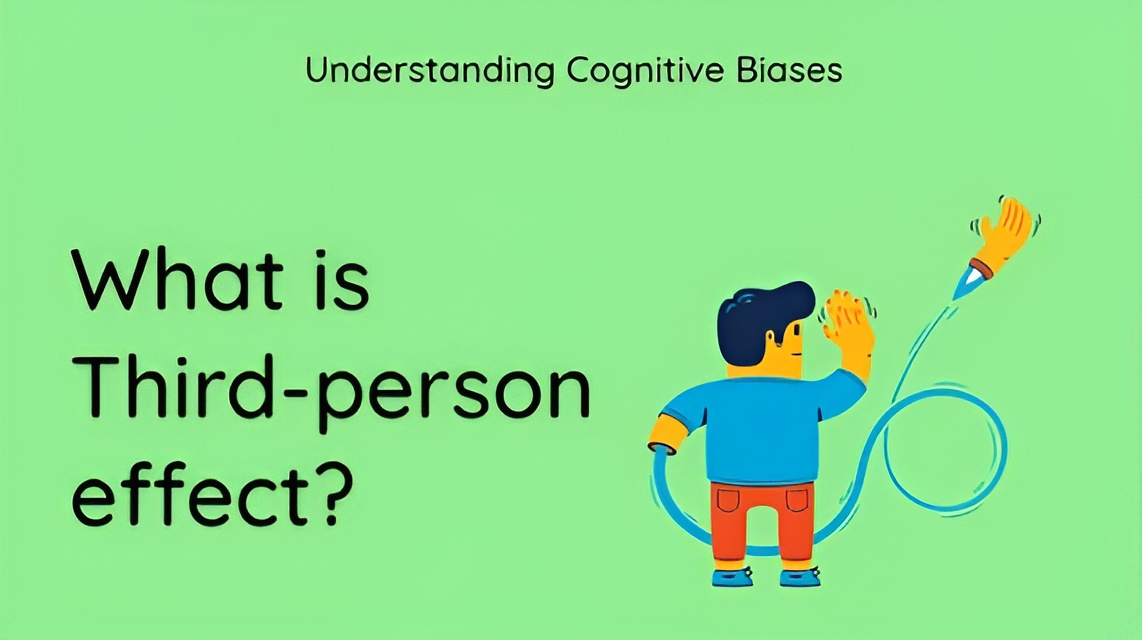The Third Person Effect: “It Doesn’t Affect Me, But It Affects Them”
The Third Person Effect is a cognitive bias in which individuals believe that media, advertising, or persuasive messaging has a more significant impact on others than on themselves. People often perceive themselves as immune to the influence of such messages.
Examples of the Third Person Effect:
Advertising: Individuals may believe that advertising for unhealthy foods or products doesn’t influence their own choices but can affect other people’s decisions.
Political Messages: Some people may think that political campaign advertisements do not sway their political views, but they can have an impact on others.
Media Violence: People may assume that exposure to violence in movies or video games doesn’t desensitize them to violence, but it could affect other individuals, particularly children.
The Third Person Effect in Action:
Imagine a scenario in which a person watches a political advertisement on television. They believe that the ad’s persuasive content won’t influence their political stance, as they are already well-informed and critical thinkers. However, they assume that it could impact less-informed voters who are more easily swayed.
Solutions to Address the Third Person Effect:
Self-Reflection: Encourage individuals to engage in self-reflection and consider the potential influence of media and advertising on their own beliefs and behaviors.
Media Literacy: Promote media literacy skills to help individuals critically evaluate the messages they encounter in media and advertising, which can reduce the impact of these messages.
Open-Mindedness: Foster open-mindedness and a willingness to consider alternative perspectives, even if one believes they are already well-informed.
Awareness: Make individuals aware of the Third Person Effect as a cognitive bias and how it can shape their perceptions.
In conclusion, the Third Person Effect is a cognitive bias that leads individuals to believe that media, advertising, or persuasive messaging has a more significant impact on others than on themselves. To address this bias, it is important to encourage self-reflection, media literacy, open-mindedness, and awareness. By doing so, individuals can make more informed and unbiased judgments about the influence of external messages on their own beliefs and behaviors.
